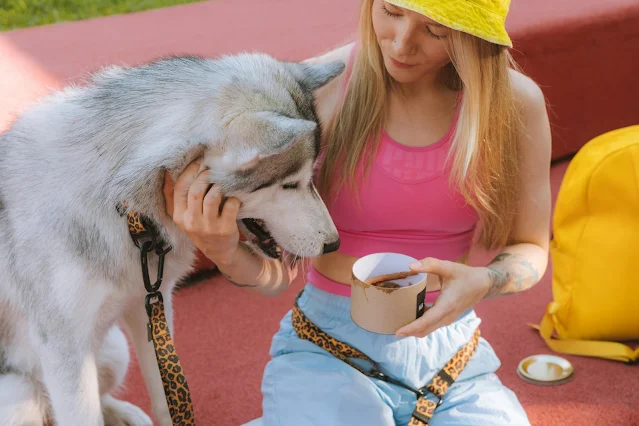Why Do We Love Pets?
Craving Contact Comfort
Ever notice how we're drawn to pets we can cuddle and pet? It's like holding a lizard in a box versus a cat you can snuggle with—it's the latter that really tugs at our heartstrings.
Psychologist Harry Harlow talked about this "contact comfort" thing. He said that young mammals, like us, have a need for physical contact with their moms. When mom's not around, they'll seek out the next best thing that feels like her.
Take Harlow's monkey experiment, for example. He put baby monkeys in a cage with two substitute moms: one made of wire with a milk bottle and one made of soft cloth with no milk bottle.
When hungry, the monkeys went to the wire mom, but the rest of the time, they clung to the soft cloth mom like glue. In the whole experiment, they spent over 22 hours on the soft cloth mom and less than 1 hour on the wire one.
So, it seems that cuddly animals satisfy our need for contact comfort. Holding them makes us feel safe and warm, just like snuggling up with mom.
Boosting Oxytocin through Pet Interaction
Ever feel that warm and fuzzy connection when you interact with your pet? Well, there's science behind it!
Researchers at Azabu University in Japan found that when dogs and their owners spend quality time together—ya know, with those meaningful eye gazes and gentle touches—it actually boosts their intimacy levels and triggers the release of oxytocin in both parties.
Here's how they did it: they had 30 pairs of dogs and owners play together in a room for 30 minutes, then collected urine samples to check oxytocin levels. Turns out, after all that bonding, both the dogs and their humans showed increased oxytocin levels, with the owners' levels spiking up to three times higher!
Oxytocin, often called the "love hormone," isn't just for ladies. It helps with stuff like triggering contractions during childbirth and stimulating milk production in nursing moms. And get this—dads get a boost of oxytocin too when they play with their kids, leading them to spend more time bonding and showing extra love.
So, that surge of oxytocin from hanging out with your furry friend? It's like a happiness boost, stress reliever, and belongingness creator all rolled into one. No wonder dogs are known to help folks battle the blues.
Pets: Our Furry Little Family
Ever notice how we go all mushy-gushy over puppies and kittens? Well, turns out, there's a reason behind our adorable obsession.
Animal experts think it's because those cute little faces, with their big eyes and tiny noses, trigger something deep inside us—the same feels we get when we see human babies.
Babies have this magical power to tug at our heartstrings and make us wanna protect them, right? Well, the same thing happens when we lay eyes on those precious furballs. Our brains go into dopamine overdrive, making us all warm and fuzzy inside and turning us into super friendly, gentle beings.
Animal scientists reckon it's our natural instinct to wanna take care of cute critters, just like it's hardwired into us to care for our own offspring. It's like a biological need for survival and nurturing.
Think about it: in parent-child relationships, babies see their moms as their "safe space." When they stumble or feel down, they run back to Mom for comfort. And once they feel better, they're off on their little adventures again.
Well, guess what? Researchers at the University of Veterinary Medicine in Vienna found that same "safe space" dynamic between pets and their humans. They ran this cool experiment with dogs to see how they'd react in different scenarios: when their owners were absent, when their owners were around but silent, and when their owners were present and rewarding them with treats. They observed how motivated and emotional the pooches were while playing with toys to win food rewards.
And guess what they found? When the owners weren't around, the dogs were way less motivated to play and win treats. But when the owners were present, even if they didn't say a word, it had a big impact on the dogs' emotions and motivation.
Sound familiar? It's kinda like how babies feel safe when Mom's around. They might get all fussy and quiet when she's not there.
This whole pet-human bond? It's like having a little fur baby of your own, with all the feels and worries that come with it.
When Our Pets Leave Us: Coping with Loss
It's a sad reality: our beloved pets' time with us is fleeting. Take dogs and cats, for example—their lifespans usually don't stretch beyond 20 years.
Eventually, they'll leave our lives, and we'll feel that pang of sadness and loss. Their departure can hit us like the loss of a family member, leaving us feeling a little emptier inside, making us experience grief, depression, isolation, guilt, and even anger.
But we've got to face the facts of separation and gradually come to terms with it.
We can mourn their passing, give them a proper farewell, speak to them at their resting place, send them flowers, write them heartfelt cards—we need to bid them farewell in our own way.
We'll feel lost and down for a while, and that's okay. We need that time to process our grief.
And then, we'll remember the joyous times we shared with them.
They brought us happiness, like rays of sunlight through the fog, adding warmth to our mundane lives. Even when they're gone, they won't take away that warmth.
I guess that's what pets do for us, huh?




Comments
Post a Comment